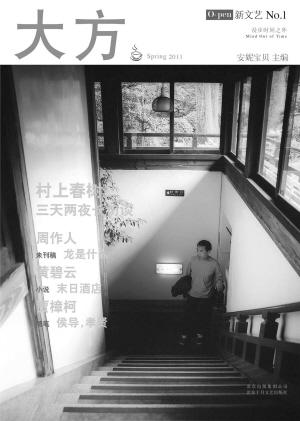10 Apr 2012 | China, Digital Freedom
It has emerged that the Chinese government has closed 16 websites and detained six people for “fabricating or disseminating online rumours” in recent weeks.
On 19 March, rumours began spreading on Chinese microblogs that claimed “military vehicles” had entered Beijing, and that the Chinese capital was the centre of a coup attempt.
The rumours focus on internal political upheaval: the sacking of Bo Xilai, the popular former Chongqing Communist Party chief. Rumours began to spread after his deputy and police head Wang Lijun sought political asylum at the American Embassy.
Xinhua reports that the closed websites included meizhou.net, xn528.com and cndy.com.cn. These small websites do not affect everyday life in China, but then on the morning of 31 March, users of the country’s most popular microblog, Sina Weibo, woke up to find that they could not comment on any posts. Users of another large microblog, Tencent’s t.qq.com faced the same issues.
And on Friday 7 April, a well-known Maoist website, Utopia, was closed down along several other less well-known leftist websites.
China’s latest censorship tactics underscore Beijing’s nervousness ahead of the leadership transition later this year, with Bo’s ousting also giving rise to speculation about top-level infighting. Combined, these two factors are making China’s leaders all the more anxious about online discussion.
Having microblog comments shut off riled netizens. Sina put up the following notice:
Weibo users:
Lately there have been a lot of unlawful and harmful content appearing in the comments section of microblogs, so from 8AM on March 31 to 8AM on April 3 our comment function will be suspended temporarily. After we have finished this round of regulation, we will re-open it again.
Han Han, China’s foremost blogger and a recent Index on Censorship award nominee, chose the second day of this three-day shutdown period to speak up. He wrote:
Flowers lose their petals in the winter, and then bloom again in spring. Some people go, some people come.
The oblique post attracted hundreds of thousands of reposts.
After commenting had been restored, users such media worker Vic speculated rote on Sina that the microblogs censors were working overtime:
Ever since microblog commenting had been restored, the moderating at Sina is obviously stronger than it had been. They have over the last couple of days set a string of posts by me under the category “only seen by me.” Little Secretary [the nickname for web censors on the microblog], you’ve worked hard!
One of the replies to Vic’s post was by Linglingfa, the head of technology at internet web forum giant Maopu. He said:
I know everyone needs at least two accounts: one for normal use, and the other to monitor whether we can use the other one normally [i.e. what gets taken down and what doesn’t]… I now understand what a great way this is for Sina to expand the number of registered users!
On the morning of 7 April, commenting on the microblogs had already returned for a couple of days, and most people were buzzing about the loss of Utopia. The Guardian reported that the leftist website was shut down because of its support of “Red” messages such as those espoused by Bo Xilai, who had initiated new classes studying the works of Mao. After reportedly being told to close for a month, the website put up a notice that said:
Our staff asked for a list of articles that they thought violated the constitution and said we would certainly co-operate and deal with these problems. They did not have any specific articles or evidence. In the end, the conversation was cut short and rudely ended.
On the Sina microblog, a link to a Tianya post that had the following statement written by a fan of the website was re-posted over 60 times. The fan had in part written:
I heard that when it started, Utopia was a last effort to restore the glory days of the Cultural Revolution, but I never saw this myself. Naturally, they posted stuff, sang Red Songs, gave speeches, went travelling, and deleted those with a different view to them, burnt some magazines that have different views, destroyed lecture venues. Though some believed in it, no-one thought it would come to this.
28 Feb 2012 | Awards, Azerbaijan News
Recognising investigative journalism of dogged determination across a range of media including print, online, radio and television, taking into consideration impact, originality and revelation
Han Han, blogger, China
 The author of China’s most widely read blog, 29-year-old Han Han has been called “the world’s most popular blogger”. He is also famed for being a cultural critic, race-car driver, actor and novelist. But despite his rock star status he has long been considered a thorn in the side of the Chinese government.
The author of China’s most widely read blog, 29-year-old Han Han has been called “the world’s most popular blogger”. He is also famed for being a cultural critic, race-car driver, actor and novelist. But despite his rock star status he has long been considered a thorn in the side of the Chinese government.
Though he has avoided ideological allegiances, Han Han recently sparked controversy with his essays, “On Democracy”, “On Revolution” and “Wanting Freedom”, which questioned where democracy really equals freedom and whether China will ever be capable of genuine reform.
Han Han has talked about suffering censorship: “Each time I do finish writing something and then can’t see it [after I post it, because it has been censored], I get despondent. And there are just so many government departments [to get past]. Even if the propaganda department and the General Administration of Press and Publications are fine with something, any department issued can wipe your essay away with a simple phone call.”
Lucía Escobar, journalist, Guatemala
 Lucía Escobar’s story highlights the state of press freedom in Guatemala, where journalists are regularly intimidated by paramilitary groups. Escobar is a freelance columnist for El Periódico, a publication based in Guatemala City, and also operates an online radio station, Radio Ati.
Lucía Escobar’s story highlights the state of press freedom in Guatemala, where journalists are regularly intimidated by paramilitary groups. Escobar is a freelance columnist for El Periódico, a publication based in Guatemala City, and also operates an online radio station, Radio Ati.
On 19 October 2011, Escobar published a column alleging that a local mayor had turned a citizens’ group into a death squad that was socially cleansing “undesirables”, such as beggars and homeless people, and committed crimes including lynchings, torture, beatings and a kidnapping. In her column, Escobar blamed local government figures for being indifferent to the group’s activities.
Subsequent death threats forced Escobar to flee her home with her family and she has said she will remain in exile until the situation improves. No action has been taken by Guatemalan authorities, pointing to a worrying trend in Central America where those in power ignore attacks on journalists.
Kayvan Samimi, journalist, Iran
 Iranian journalist Kayvan Samimi has been instrumental in keeping dissent alive in the Islamic Republic.
Iranian journalist Kayvan Samimi has been instrumental in keeping dissent alive in the Islamic Republic.
Despite being imprisoned since 2009, Samimi has played a significant role in highlighting the attacks against those who attempt criticise the Iranian administration. In May 2011 Samimi co-authored a letter condemning the Iranian administration for its treatment of prisoners. The letter recorded the methods of torture used against the signatories.
He is serving a six-year prison sentence on charges of “propagating against the regime” and “assembly and collusion to disrupt national security” and has been banned from “political, social, and cultural activities” for 15 years, having been detained in the immediate aftermath of the 2009 presidential election.
Idrak Abbasov, journalist, Azerbaijan
 Idrak Abbasov is an Azerbaijani journalist whose investigative work has put his life in danger. Abbasov reports for newspaper Ayna-Zerkalo, contributes to the Institute for War & Peace Reporting website, and he is one of the founding members of Azerbaijan’s Institute for Reporters’ Freedom and Safety (IRFS) .
Idrak Abbasov is an Azerbaijani journalist whose investigative work has put his life in danger. Abbasov reports for newspaper Ayna-Zerkalo, contributes to the Institute for War & Peace Reporting website, and he is one of the founding members of Azerbaijan’s Institute for Reporters’ Freedom and Safety (IRFS) .
On 9 September 2011, after Abbasov investigated the activities of a local oil company, the State Oil Company of Azerbaijan (SOCAR) sent bulldozers to his family’s home. SOCAR claimed ownership of the site as part of a project to develop local oil resources with Global Energy Azerbaijan Ltd. His parents and brother were hospitalised after being attacked by the company’s security service during the incident.
It is believed that bulldozers targeted the journalist’s home because of his work monitoring human rights. The violence, threats and harassment of Abbasov and his family continued when his parents were again attacked at their home. One assailant reportedly said: “Tell Idrak to get smarter, or we will cut off his ears.”

supported by

4 Nov 2011 | Asia and Pacific, China

O-pen Magazine was set up in March 2011 by Annie Baby, a popular novelist who got her start on the internet. On 1 November she announced on her Sina microblog that O-pen had been forced to stop publishing. In China, magazines need a national periodical registration number, which enables the government to control magazine output. Like other magazines without a registration number, Annie Baby opted to use ISBN from a publishing house.
Local speculation suggests that shutting down O-pen because it had the wrong registration code was just a pretext. The state has begun a cultural campaign to ‘rectify and purify content’ on TV and other forms of cultural expression is taking place.
Magazine censorship is nothing new — China’s No. 1 blogger Han Han, also a novelist, launched Party in June 2010, it was shut down after just one issue. On November 2, Han Han wrote a blog post that was later taken down by the authorities. However, University of Hong Kong brilliant China Media Project had already posted a translation:
I’ve been involved in this work [of writing] for around 13 years now, and I now understand just how powerless and of no account cultural workers (文化工作者) really are. Owing to a richness of restrictions, people in this line of work are unable to produce anything truly special.
Even though Han Han does not explicitly state it, he is referring to Annie Baby. Han Han compares censorship to castration.
As for myself, while every single essay I write goes through a process of self-censorship and castration, sometimes unavoidably the fashion of my castration is still insufficient to pass muster. This has to do with the level of sensitivity at various publishing houses. For example, my most recent novel has been killed outright, because the protagonist in the novel is surnamed Hu [like China’s president]. So even though I have only written 5,000 characters so far, the publisher assumes there must be political allegory somewhere. By the time I realized I had to avoid this name and changed the character’s surname it was too late.
4 Nov 2011 | Asia and Pacific, China
Cross posted with thanks to the Chinese Media Project for the translation
I haven’t written anything since [my July post] “Nation Derailed.” In point of fact, I’m not very diligent about my writing, and each time I do finish writing something and then can’t see it [after I post it, because it has been censored], I get despondent. And there are just so many government departments [to get past]. Even if the propaganda department and the General Administration of Press and Publications are fine with something, any department issued with Passats and above can wipe your essay away with a simple phone call. Of these, the most merciful are in fact certain local public security departments. Back in 2008 I wrote an essay that wasn’t deleted until a after a lapse of a whole year. No wonder people complain about slow police response times. It’s true. There are so many places that delete articles that one doesn’t know how to begin writing.
I’ve been involved in this work [of writing] for around 13 years now, and I now understand just how powerless and of no account cultural workers (文化工作者) really are. Owing to a richness of restrictions, people in this line of work are unable to produce anything truly special. Allow me to share a few stories.
China’s publishing industry actually isn’t so subject to official censorship. People will find that strange, because it goes against the common understanding. But I can tell everyone that there really is no censorship in the book publishing industry. This is because tens of thousands of books are published every year in China, and it’s actually impossible to censor them all. Moreover, I believe that most of those comrades charged with reading books [to censor them] don’t really enjoy reading books, so book censorship has actually been left to the publishing houses themselves.
But this doesn’t amount to the opening of one-hundred flowers. Of course it doesn’t. To put it rather more expertly, this is what they call a system of post-facto censorship (事后审查制). In fact, post-facto censorship is stricter than prior censorship, more lethal and having more adverse reactions. This is something of which those who have used postcoital contraceptives have a rather deeper sense.
Only if you obtain a book license [or “book number”] can you publish, only publishing houses can issue book licenses, only the authorities can operate publishing houses, and so from the very fountainhead publishing freely is impossible. Owing to the fact that the vast majority of state-run publishing houses are of no use, many privately-run cultural enterprises (民营文化公司) have gotten into the book publishing business. The method of publishing is either joint publishing [with a state-run house] or purchasing a number of book licenses from publishing houses. This, however, cannot change the situation facing publishing, because the publishing house still has the ultimate decision.
In the past when a book was not allowed to be published, the reason given was that it was counterrevolutionary. But this term counterrevolutionary later fell out of use because while counterrevolutionary activity was still frowned upon no one wanted exactly to encourage revolution either. In the view of the authorities, the work of the revolution had already been accomplished, and so while counterrevolutionary behavior was a no-no, revolution was equally unwanted. The best thing was for the masses to just live their lives by staying put.
So now the reason for not being able to publish things is that they are deficient in taste (格调不高). My first book, The Three Doors (三重门), was dragged about in coming out precisely because it was deficient in taste. If something’s deficient in taste this can be fatal. After all, if the writing isn’t strong enough, it can be improved. If the logic isn’t there, it can be worked out. But deficiency of taste is a real headache, and you just don’t know how you can lift up your taste. If you ask them what they mean by taste, they don’t know either. Only now have I come to understand that taste actually means to cut out (割掉), so deficiency of taste actually means that not enough has been cut [NOTE: This is a play on words, as the words “taste”, gediao, and “to cut out” are homophones in Chinese]. So you think that just by symbolically smoothing out the calluses on your feet you can make it in the creative industries [in China], eh? No, you have to make sure you cut high enough. If you spare that part just below the waist, you might still be too manly for the creative industries.
I’ve long been subjected to the bitterness of censorship. But since I managed to raise my taste somewhat, I have fortunately been able to publish books. And because some books have enjoyed substantial sales, I’ve sometimes been able to get the publisher to push the taste down just a bit. Each time before I write I have to go through a process of self-censorship. Perhaps some who have never worked in this industry might feel that doing this makes us somehow cowardly, not MAN enough. For example, before my book Solo Troupe (独唱团) was published I went through all sorts of difficulties. Some of my friends couldn’t stand it. They said I was selling out, and if it were them they would say forget the book number, take it right to the printers, print tens of thousands of copies and start selling them. While I admire these friends for their deficiency of taste, they don’t understand that the printers can only run their machines once they’ve received a printing authorization from the publishing house. Otherwise you can’t print a single copy without someone informing the police. If your own grandfather opens up his own printing house and you manage to print tens of thousands of copies, without a book number no bookstore or newsstand is going to carry your product. Even those people who sell pirated copies won’t help you sell it.
These friends might say, well then, I would just put it up on the internet and sell it on Taobao. Let me tell you then that if you want to sell books on Taobao you first have to have the credentials, you can’t just tack a book cover right up there. You have to enter the book number, and once the system has verified the book number and the book title, only then can your book go up.
And so up to this very day, everyone and anyone involved in culture is engaged in a painful process of self-censorship. So can we look forward to publishing houses lowering their taste a bit? This is of course impossible. As soon as a publishing house shows any sign of notching down its taste — remembering that these are state-run units — the authorities will just send over a new publishing chief. The nasty thing about post-facto censorship is how it exacts penalties. It says, look, I’m not going to look over your shoulder, but if you publish something improper I’ll have your head for it. If it’s something less serious I’ll fire you from your post or disband the publishing house; if it’s serious I’ll lock you up. So, you decide how you want to do it.
As for myself, while every single essay I write goes through a process of self-censorship and castration, sometimes unavoidably the fashion of my castration is still insufficient to pass muster. This has to do with the level of sensitivity at various publishing houses. For example, my most recent novel has been killed outright, because the protagonist in the novel is surnamed Hu [like China’s president]. So even though I have only written 5,000 characters so far, the publisher assumes there must be political allegory somewhere. By the time I realized I had to avoid this name and changed the character’s surname it was too late.
I don’t know how a country where a writer trembles when he takes up his pen can build itself into a cultural great nation (文化强国), or how a country where you have to avoid using the names of [politburo] standing committee members and therefore can’t find the [Tang dynasty poet] Li Bai in a Google search can build itself into a cultural great nation. I have no idea how these cultural system reforms are supposed to work. I just have one wish, and that is that Mr. Han Zheng (韩正), [currently the mayor of Shanghai], is not promoted again. Otherwise, I won’t even be able to come up with myself in a search.
格调不高怎么办 (2011-11-02 18:42:22)转载
标签: 杂谈
自从《脱节的国度》不见了以后,一直都未写东西。因为我着实是一个写的不勤奋的人,每次写完,隔日不见,真的扫兴,而且国家部门繁多,就算宣传部门和新闻出版部门觉得没问题,所有配备了帕萨特以上公务车的部门也都可以一个电话把你文章删了。其中最仁慈的反而是某地方的公安部门,08年有一天我写了一篇文章,事隔一年多,他们删除了这篇文章。难怪大家都说公安出警慢。没错。删文章的地方太多了,就不知道该怎么下笔了。
从事了这个工作大概十三年,我发现文化工作者在地位上真是一个特别下三滥特别窝囊废的工种。这个工种所出产的作品由于受到诸多的限制,所以肯定没有那么奇特的经历更加精彩。我来说一些小故事。
在中国的出版行业,其实是没有官方的审查的。大家都应该觉得很奇怪,因为这违背了常识。但是可以告诉大家,出版行业的确没有审查。这是因为中国每年要出几十万本书,实在审查不过来。而且我相信管那些读书人的同志大部分都不爱读书,所以图书审查其实一直由出版社独立完成。
但是这样一来岂不是百花齐放了。当然不是。比较专业的说,这叫事后审查制。事后审查制其实要比事前审查制更加紧,杀伤力和副作用更大。这点用过事后避孕药的朋友肯定深有感触。
只有拥有书号才能出版,只有出版社才能发书号,只有官方才能有出版社,所以从源头上,自由的出版其实是不可能的。而由于大量的国有出版社能力不济,很多民营文化公司开始运营图书出版。出版的方式就是合作出版或者从出版社那里购买一些书号。但这依然不能改变出版现状,因为出版社依然是终审方。而一本书如果不让出版,在以往理由是反革命,后来反革命这个词不太出现了,因为反革命既然是不好的,那岂不成了鼓励革命。而官方认为,革命工作已经完成,所以既不能反革命,也不能革命,群众最好的生活方式就是呆着。于是现在不能出版的理由就是格调不高。我第一本书《三重门》就是因为格调不高,迟迟不能出版。格调不高是致命的,因为文笔太差可以改,逻辑不清可 以理,唯 独格调不高让人头疼,你也不知道怎么能让自己的格调提高一点。你问他什么是格调,他也不知道。一直到现在,我才明白了,格调其实就是割掉的意思,格调不高就是割掉的不够高,你以为象征性的把脚底板的老茧磨磨平就能从事文化行业了么,你要割掉的够高。凡是保留腰以下部分的,从事文化行业明显还是会显得雄性气息太浓厚。
我是一直饱受审查之苦的。但在格调稍微高了一点以后,我还是侥幸可以出版图书,并且因为图书的畅销,有的时候还稍微可以在小问题和出版方争取格调稍微降低一点。每次写作前,我都要进行一次自我审查。也许很多没有从事过这个行业的朋友会觉得我们这样做特别怂,不够MAN。比如当年《独唱团》出版前遇到很多的困难,一些朋友看不下去了,说你太娘们了,这要是我,不要书号了,直接拿到印刷厂去,印个几十万本,这就开卖了。我欣赏这位朋友的没有格调,但他们不知道印刷厂只有收到了出版社开具的委托印刷单以后才能开机印刷,否则你非但印不了一本,人家就报警了。其次就算你爹开了一个印刷厂,你印刷出了几十万本,你没有书号,就没有一家书店和报刊亭是会进你的 货的。连 卖盗版的都不敢帮你卖。也许这位朋友会说,那我就放到网上去,在淘宝卖。那我告诉你,在淘宝销售图书,首先你得拥有资质,其次你不能随手拍一个封面就上架了,你必须输入书号,当系统把你输入的书号和书名对应起来,你才能上架。
所以一直到今天,所有的文化人都在进行着痛苦的自我审查。那我们能否指望出版社突然格调降低呢,这当然也不可能,一旦出版社有格调降低的迹象,由于都是国有单位,官方再指派一个社长过去就是。而那些格调降低的同志就可以去妇联残联养养老。事后审查制最恐怖一环在于惩罚,就是我不管你,但你要是出版了什么幺蛾子,我罚死你。轻则撤职撤社,重则投进大牢,所以你看着办吧。
至于我本人,虽然每一篇文章都经过了自我审查和阉割,但有的时候难免也会出现阉割的形状不符合认证的情况。这个和每个出版社的紧张程度有关系。比如我最新的小说就被枪毙了,因为新小说里的主人公姓胡,虽然我才写了五千字,但是出版社认为这必然是有政治隐喻的。当我明白了要避讳的时候再改姓已经晚了。但避讳要记住勿忘前朝,我还有一篇小说中,因为出现了“江河湖海”四个字,被更直接的枪毙了。如果说之前我犯了错误的话,那这一个就是两倍的错误。连我都不能原谅我自己,明知道惹不起,怎么连躲都没躲利索呢。
我不知道一个文化人提笔就哆嗦的国家怎么能建设成文化强国,一个因为要避讳常委所以在谷歌上搜索不到李白的国家怎么能建设成文化强国。我不知道该怎么一个文化体制改革法,反正我只有一个愿望,就是韩正老师别再升官了,要不然我就搜不到我了。
谨以此文纪念一期被停的《独唱团》以及两期被停的《大方》。







